Lots of things, from sparking flavored waters to ready-to-drink coffee, but the growth of plant-based dairy alternatives has also been a key factor, says Packaged Facts in its new report, Dairy and Dairy Alternative Beverage Trends in the U.S., 4th Edition.
While some consumers are choosing plant-based milks because they believe they are healthier – a belief milk producers and some dietitians argue is misguided – there are other factors behind the drop in fluid milk consumption, says Packaged Facts.
“Consumers who don’t drink milk cite two reasons more than any others: they don’t like the taste of milk and they have an allergy or intolerance to milk or its lactose component. Some consumers are concerned about the health implication of hormones and antibiotics used in producing some milk, the healthiness of milk in general, and the fat content of milk.”
While plant-based diets are trendy, there has not been a significant rise in the percentage of the population (15%) claiming to be vegan or vegetarian, adds Packaged Facts. However, more consumers are trying plant-based foods and beverages as part of a flexitarian approach to eating, which could help to explain the shift.
How can the dairy industry arrest declining milk sales?
So how should the dairy industry respond?
One approach has been to aggressively highlight the perceived nutritional shortcomings (less protein, fewer nutrients) and lengthy ingredients lists of some plant-based beverages (which some critics argue are mostly water with added sugar, gums, stabilizers, emulsifiers). Another has been to try to stop plant-based brands from using dairy terminology to describe their wares ('milk,' 'cheese,' 'yogurt').
Other approaches include developing premium products with extra calcium, added long-chain omega-3s, less sugar and more protein (eg. fairlife), or tummy-friendly claims (eg. A2 milk).
There may also be mileage in more aggressively embracing consumers’ newfound enthusiasm for whole milk; developing more ready-to-drink beverages in which dairy milk is a key component (smoothies, energy drinks, protein shakes); and focusing on quality/sustainability/animal welfare attributes via grass-fed milk products, says Packaged Facts.
Dairy companies might also be wise to follow the lead of Dean Foods and Danone and invest in plant-based companies (Good Karma Foods, Whitewave), says the report.
“There are a many plant-based beverage companies, large and small, that are already established or on the brink of a breakthrough. Acquisitions must be considered, not merely to offset losses from declining milk sales, but to take advantage of the growing sales in the alternatives market.”
According to Packaged Facts, if you broaden the definition beyond plant-based 'milks' to include plant-based yogurt drinks, creamers, ready-to-drink coffees and other drinks with plant-based milks as a base, US retail sales of plant-based beverages topped $6bn in 2016.
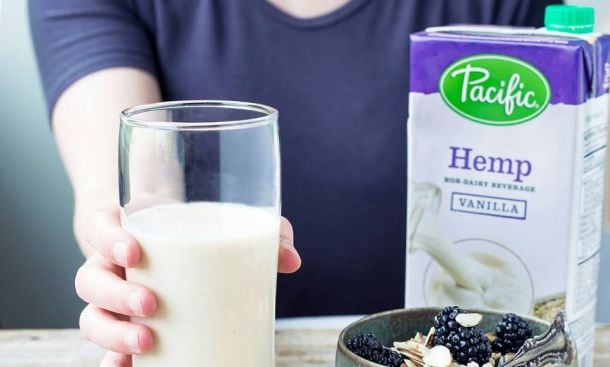
“The plant-based dairy beverage alternatives category has seen an expansion of several nut- and legume-based milk alternatives beyond soy, rice, coconut, and almond to include varieties made from cashews, hazelnuts, macadamias, peas, peanuts, pecans, and tiger nuts. In addition, there are non-dairy milks being offered made from bananas, barley, cassava, flax, hemp, oats, potatoes, and quinoa.”
Packaged Facts
Are all plant-based milks equal?
As for plant-based beverage trends, nearly 30% of US consumers now consume plant-based milks on a daily basis, claims Packaged Facts, which notes that as the category has expanded, brands have not necessarily presented a united front, with some players querying the nutritional credentials of rivals in the space, with Ripple (higher protein pea-based milk) recently branding almond milk a ‘sham.’
Brands offering almond milk products, meanwhile, argue that most Americans already get enough protein, and can choose higher protein plant-based options if this is important to them.
They also observe that consumers choose plant-based beverages for a variety of reasons, from animal welfare to sustainability, or digestive issues, as well as perceived health benefits.
“What parents often don’t realize is that some plant-based beverages are not fortified with any minerals or vitamins; these drinks are low in all nutrients except carbohydrates, in fact sugar is often the second ingredient after water.”
Catherine Pound, paediatrician and spokesperson for the Canadian Paediatric Society
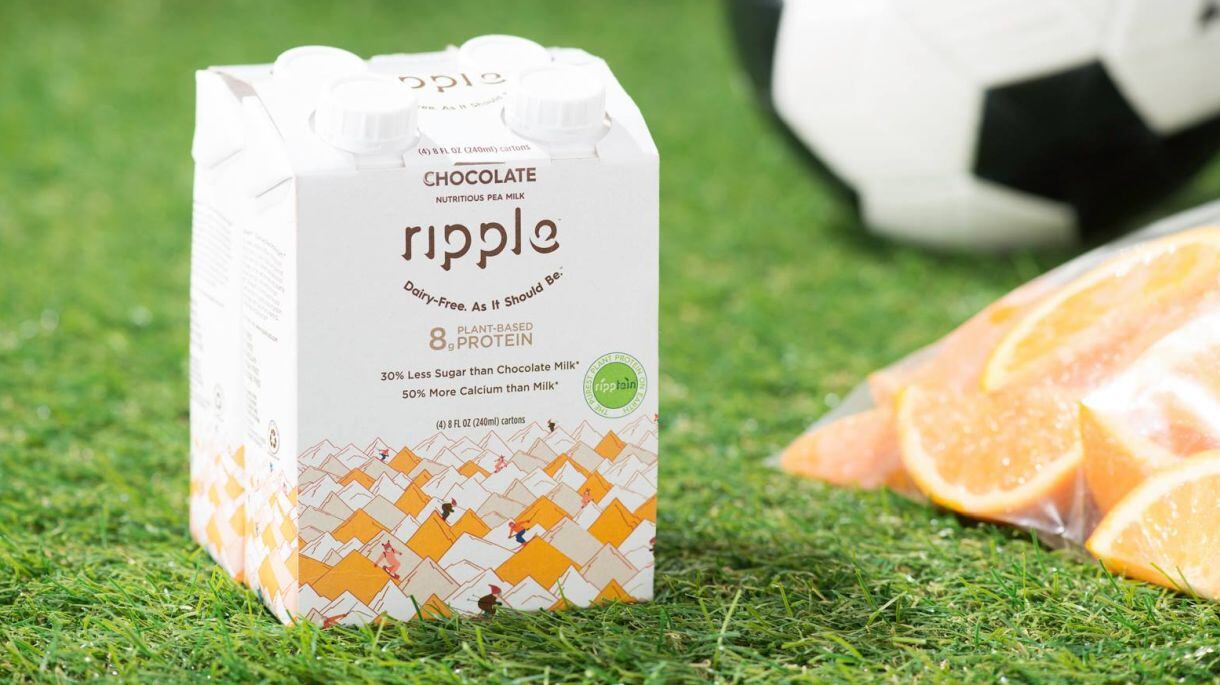
Pea protein fueled brand Ripple has dialed up the protein (8g per 8oz serving, original flavor) and dialed down the sugar (6g per 8oz serving, original flavor) to create an allergen-friendly (soy-, dairy-, nut-free) beverage with 20% fewer calories, a sixth of the saturated fat and half the sugar of 2% dairy milk, and eight times the protein of almond milk.
It also contains 32mg of the long-chain omega-3 fatty acid DHA (from microalgae) per serving, 45% of the DV for calcium, 30% of the DV for vitamin D, 10% of the DV for vitamin A and 13% of the DV for iron.
According to Packaged Facts, dairy alternative beverage trends to watch include:
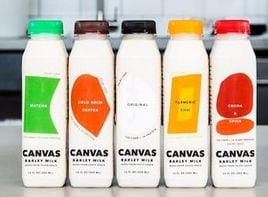
Barley milk: “Pioneering a new plant-based milk alternative category is Canvas, a startup that has developed a way to convert unused barley grain leftover from the beer brewing process into a sustainable plant-based beverage—a winning idea for consumers concerned about the issues of food waste and sustainability.”
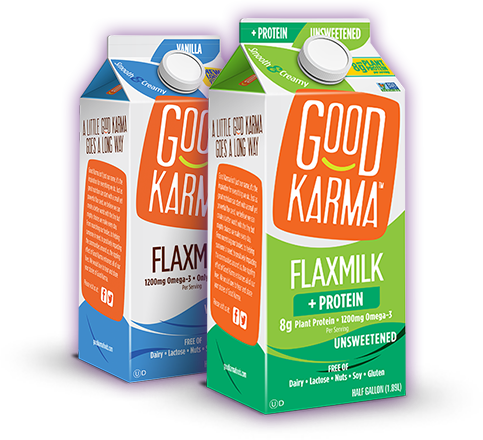
Flax milk: “The key selling point for flax milk is its high [short chain] omega-3 [ALA] content.”
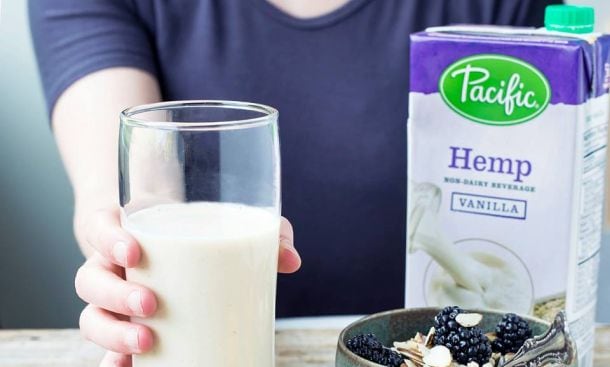
Hemp milk: “This is a segment with the potential for rapid growth as consumers look for alternatives to the established plant-based beverage segments. Hemp is an excellent source of omega-3 fatty acids as well as being a good source of plant-based protein, with all ten essential amino acids.”
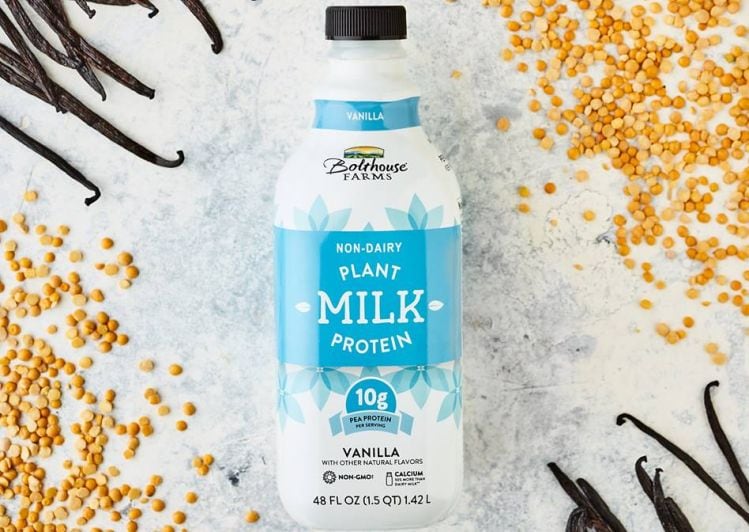
Pea milk: “The pea milk brand Ripple says that one serving has 8 grams of protein, the same as cows’ milk, compared to about 1 gram of protein in coconut or almond milk. And, Ripple has half the sugar of cows’ milk—something more and more consumers are sensitive to as they watch their waistlines—along with 50% more calcium, and vitamin D and iron.”
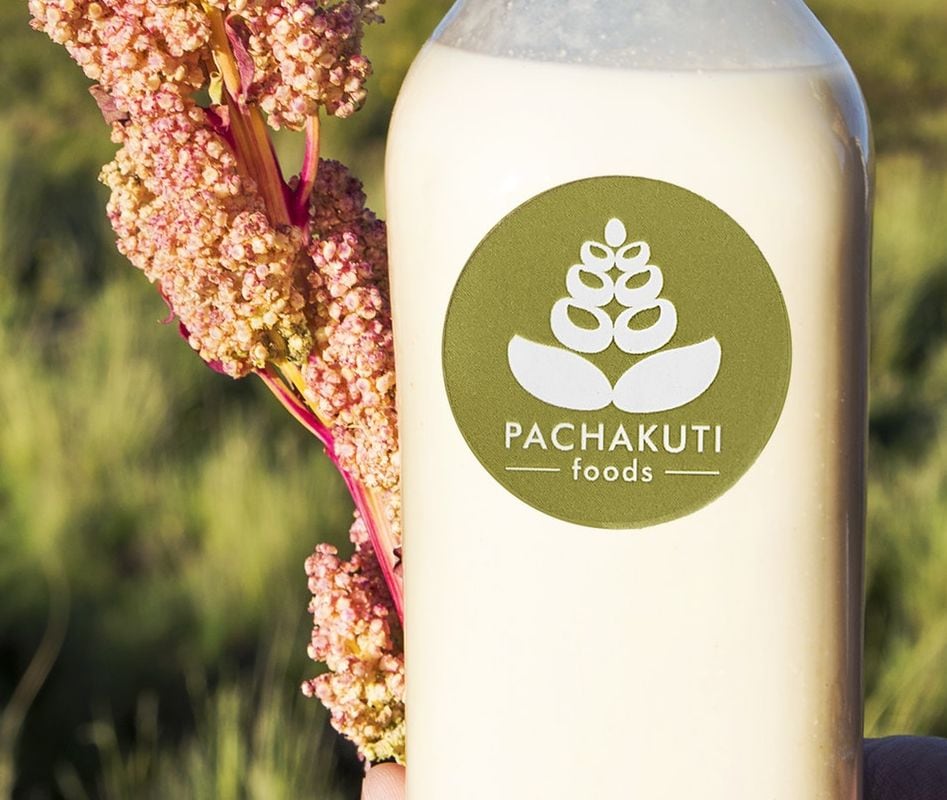
Quinoa milk: “This beverage formulation is reported to be high in protein, fiber, vitamins, and all nine of the essential amino acids. It also contains important minerals such as magnesium, iron, copper, manganese, zinc, and phosphorus and has a low glycemic index.”
*Click HERE to see the USDA data.
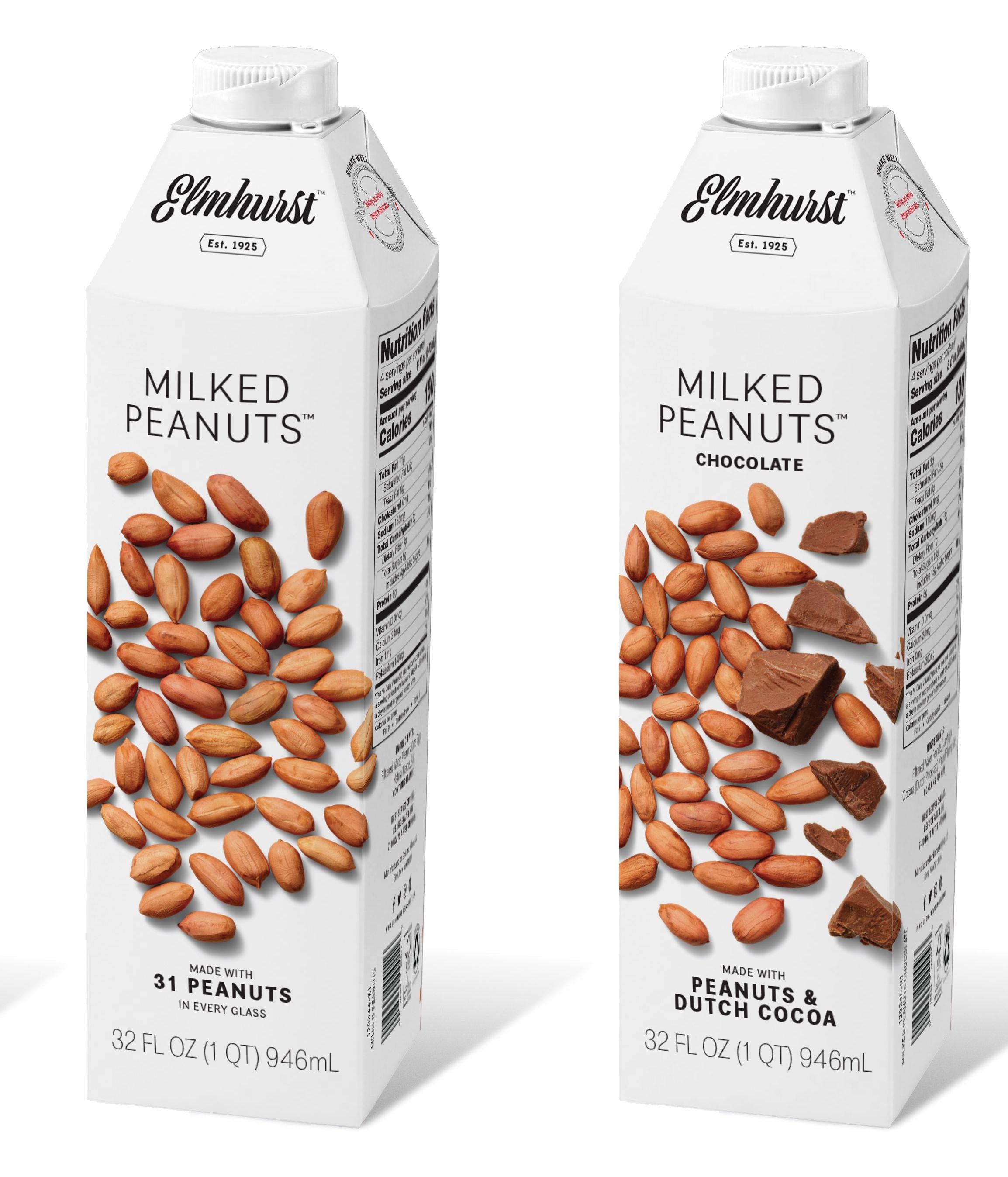
Elmhurst Milked is hoping to make a splash in the burgeoning plant-based dairy arena with ‘milked peanut’ beverages that offer more protein, less sugar, a creamier mouthfeel and a noticeably shorter, cleaner, label than other nut milks, with products set to hit stores early next year.
Manufactured by Steuben Foods in Elma, New York, via a patented, proprietary ‘cold milling’ process that begins with whole nuts, the lightly tan-colored original version of the peanut milk has a creamy mouthfeel but refreshing consistency created without emulsifiers, gums or stabilizers (which are typically used to hold plant-based proteins in suspension and to create a thicker mouthfeel).
It contains just five ingredients - filtered water, peanuts, cane sugar, natural flavors, and salt - and has 150 calories per 8oz serving (which is at the higher end of the spectrum; an 8oz glass of whole milk has 136), but has four times the nuts [31 peanuts in every glass], six times the protein (6g), and less sugar (5g) than best-selling almond milk brands Silk and Almond Breeze, which both have 1g protein, 7g sugar, and 60 calories per 8oz glass. Read more HERE.
